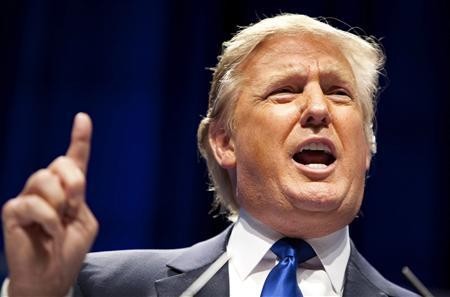Republican presidential hopeful Donald Trump published his First Policy Paper, in which he publicly criticized some prominent individuals, including Facebook founder Mark Zuckerberg.
In his policy paper, Trump declared his opposition to the H-1B visa program noting that the United States, especially the tech moguls in Silicon Valley should employ more women, Hispanics, and Black Americans before hiring foreigners abroad.
Trump wrote that politicians and businessmen, including Zuckerberg, only want cheap labor. The former "Celebrity Apprentice" host said, "Real immigration reform puts the needs of working people first, not wealthy globetrotting donors. We are the only country in the world whose immigration system puts the needs of other nations ahead of our own."
The presidential aspirant also singled out Marco Rubio, calling him Zuckerberg's personal senator. Zuckerberg and Rubio have been allies in supporting foreign employment in the U.S.
Zuckerberg leads a political action group called Fwd.us, which aims to have more H1-B visas granted because tech companies cannot find all their labor needs in the U.S. The Facebook CEO has not yet commented on Trump's latest release.
Meanwhile, Silicon Valley has a long way to go when it comes to workforce diversity. Published reports on the 2014 workforce of Facebook, Twitter, and Google, show their employees are predominantly white and male.
Facebook and Google have already promised President Barrack Obama on the recent White House Demo Day that they will exert efforts to provide jobs to more women.
Facebook promised to launch a new Supplier Diversity program meant to increase the number of women and minority-owned businesses on Facebook's supply chain. Google is set to host its first-ever Women's Demo Day. Twenty-one percent of the tech hires in Google in 2014 were female. The achievement is the beginning of the company's game plan to employ more women, Town Hall reported.
Women make up 59 percent of the total U.S. workforce and 51 percent of the population. Nonetheless, they only compose 30 percent of the tech industry work force.




























